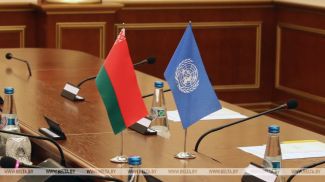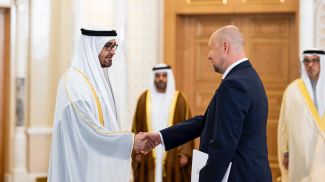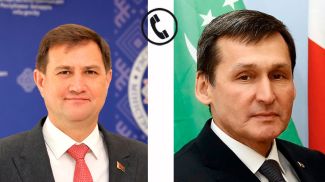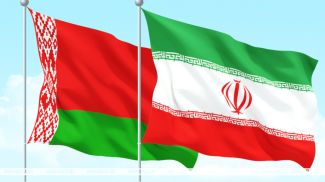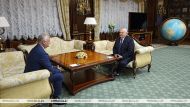MINSK, 16 March (BelTA) – In an interview with the Belarus One TV channel, Ambassador Extraordinary and Plenipotentiary of France to Belarus Didier Canesse talked about the things he associated Belarus with, the importance of implementing the Minsk Agreements, the prospects of Belarus-France economic cooperation and his attitude towards the Belarusian language and the latest trends in the domestic policy of France, BelTA has learned.
From Napoleon to Chagall
When asked about his associations with Belarus before his arrival to the country as a diplomat, Didier Canesse said that it was mainly art, and the Paris School artists Marc Chagall, Chaim Soutine and Ossip Zadkine.
He also knew well-known Belarusian writers.
“For French people Belarus is also associated with Napoleon and his army's retreat. This historical moment bears special significance for all the French, especially the most dramatic part of it, the crossing of the Berezina,” the diplomat said.
According to the Ambassador, Belarus is also associated with the accident at the Chernobyl nuclear power plant. He noted that France provided humanitarian assistance to Belarus in an effort to help the country mitigate the consequences of the disaster.
On visa-free entry and possible reciprocal moves
As any measure aimed at facilitating visa application procedures, the launch of visa-free entry for citizens of a broad group of states will have a positive affect on Belarus' tourist numbers, the diplomat is confident.
“This measure will, first of all, benefit business contacts as businessmen usually pay short visits,” Didier Canesse said.
He noted that France decided in favor of a similar policy. “We canceled visas for citizens of more than 60 countries. We have also simplified the five-year multi-entry visa application process. As a rule, we issue visas within 24 hours,” the diplomat said.
Speaking about possible reciprocal steps in respect to Belarus, Didier Canesse said: “The process is underway within the European Union. There is a special task force that is working on the matter.”
On Belarus-France economic relations
The diplomat noted that not long ago the two countries set up a special joint working group which first met in Paris in late January 2017. The major goal of the group is to share France's experience in tourism development.
The diplomat added that environment is an important area of innovations in France. “I am convinced that France can share its technologies in waste treatment and solutions to reduce energy consumption. This sector holds great potential. Today, France views green economy as a driving force behind economic growth,” said the Ambassador.
According to Didier Canesse, France imports a wide range of Belarusian goods. These are, for example, chemical fertilizers, wood and plastic products.
“All French teenagers and even adults know the computer game World of Tanks,” the Ambassador noted. He said that Belarus-France cooperation in the IT sector is also promising.
On the Belarusian language
“The language seems to have been gaining popularity recently. The language sounds very nice,” the Ambassador said.
On Minsk Agreements
“The Minsk agreement should be implemented in full. France stays committed to the process. We see no alternative to the Minsk agreement. We appreciate Belarus' support to the process,” said the diplomat.
On the presidential election in France
The Ambassador noted that the election campaign in the country has been rapidly gaining momentum. “I can say that the French society has changed in recent years and the electorate's requirements to the candidates have become tougher. Today French people want the future president of France to be a decent and irreproachable person. Our legislation in the field has changed as well. For instance, a law was introduced to ensure transparent financing of political parties and election campaigns,” the diplomat said.
Commenting on today's stronger position of right-wing politicians and Euroscepticism, Didier Canesse stated that for politicians it is very hard to explain how the EU functions. “Sometimes there is an inclination to say that all the unpopular measures come from the EU. The decisions in the EU, however, are not taken by some bureaucrats. They are taken by the governments, the Parliament of the European Union whose members have been democratically elected by the EU citizens,” he said.
On possible Frexit
“This is political populism,” the Ambassador stressed.
According to Didier Canesse, France is strongly committed to the European idea and it is one of the EU major participants. “There are people in the French society who are skeptical of the European Union. The majority of the French, however, are in favor of the European Union,” the Ambassador said.




